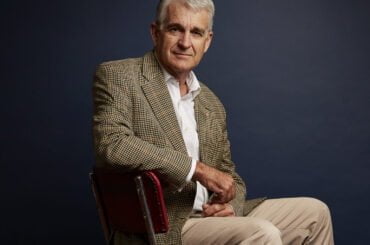In Context
Over the past ten years in America there have been increasing calls from media, academics, and politicians such as Bernie Sanders and Alexandria Ocasio-Cortez to reform the American economy and laws to resemble Europe. It has become common to see America’s healthcare system, free speech tradition, and free-market economy as backwards and regressive. Europe’s, on the other hand, are praised as humane and “progressive”. But is this true? David Harsanyi looks into the laws, the statistics, and the economic outcomes of European policy and finds that despite the hype, Europe is a sinking ship precisely because of the regulation and secular humanist philosophies that have taken over during the past fifty years. Europe is not a beacon of hope but a lighthouse portending a danger to be avoided.
Big Ideas
- Scandinavian and Nordic countries are not socialist, they are capitalist, with tiny populations and great wealth in natural resources
- Programmes that may work in tiny, wealthy, culturally homogenous Scandinavian countries will not necessarily work elsewhere
- American health maladies are not because of America’s lack of a socialized health system, but because of lifestyle choices
- Europe has very high levels of xenophobic and anti-Semitic sentiment. The safest place in the world for a Jew is America
- Free speech is dying in Europe – especially the UK – as more and more speech is increasingly being defined as offensive and harmful
Everyone should be like Scandinavia, right?
How often when pressed to name a better country than America do progressives immediately spurt out “Scandinavia” or Sweden as though the mere utterance of the words is an immediate TKO against the minimal state? Then progressives will tell us that Scandinavia and the Nordic countries are socialist, and that the rest of us must toe that line in order to enjoy their prosperity and equality. But as Harsanyi points out the so-called “Nordic model” is not socialist, it is “an expanded welfare state which provides a high level of security for its citizens, but it is also a successful market economy with much freedom to pursue your dreams and live your life as you wish.” [13-14]
The populations of these northern-European countries are tiny (Sweden 10.5mil), Norway (5.5 mil), Denmark (6 mil), Finland (5.6 mil) and they are extremely rich in natural resources. For example:
In Norway, the Ekofisk oil field, first discovered in 1969, allowed the nation to create the Government Pension Fund Global. From this over-1 trillion reserve, checks are sent to the nation’s small population of 5.5 million. Denmark, Western Europe’s largest oil and gas producer, also relies heavily on fossil fuels to bolster its economy. [25]
Mostly, says Harsanyi, these countries rely on sky-high taxes to sustain their welfare states. For example, if we transplanted Swedish tax laws to America, someone earning $60k p/a (US) would be subjected to a 60% tax rate – well over half their income. Furthermore, there is a correlation between high levels of public trust and national solidarity and ethnic homogeneity: people are more prepared for their incomes to be redistributed to people with whom they feel an ethnic affinity. [22] The population of the US is far more ethnically diverse than the Scandinavian and Nordic countries, as well as having a massive population of 330 million. Thus, the suggestion that Northern European economic practices could just be transplanted to the US would be like transplanting a healthy squirrel’s heart into a sick bison, leading not to the latter flourishing like the former, but the latter dying from an organs completely unsuited to its surroundings.
Healthcare
The US healthcare system is seen as terminally ill almost the world over. But is it? Harsanyi says the situation is widely misunderstood. It is true that the US has a lower life-expectancy rate than many European countries, but this is not because of a poor healthcare system, as opposed to bad lifestyle choices, food in particular. Americans love junk food. Furthermore, Americans drive much more than Europeans, which means there are far more road fatalities, again, bringing down the overall life expectancy. Finally, and this is no ringing endorsement for America, there is more deadly violence in America. Harsanyi says, “When researchers at Texas A&M and the University of Iowa began removing all fatal injury deaths from life expectancy tables of developed nations, the United States rose from the bottom end of the list of industrialized nations to first.” [32-33] Another thing that brings the statistically average lifespan of Americans down is the fact that Americans are less inclined to abort Down syndrome babies and babies that doctors deem to have little chance of survival. [33] In other words, the lower life expectancy in America cannot simply be attributed to the healthcare system, it is ironically explained by American’s greater respect, than Europeans, for the sanctity of life.
Notwithstanding the frequent inefficiency of the FDA, “Americans get better drugs and they get them faster” than in Europe with its public health systems’ red tape. Why might this be? One major reason is that in much of Europe the cost of medicines is capped by the state, limiting how much drug companies can profit from them. In America there is no such cap; prices are determined by the market which means pharmaceutical companies have a greater incentive to research and create more medicines because they can profit more. [36] “For decades now”, say Harsanyi, “studies have found that most cancer patients in the United States live considerably longer than Europeans after diagnosis.” [36]
Europhiles point to European public healthcare systems as models for emulation, especially the NHS in England. Harsanyi reminds us that the system isn’t free, as it’s paid for through higher taxes. The other problem is that there is significant medical rationing with the NHS system, especially as the system is perpetually underfunded, according to its advocates in Europe. This means the NHS “has been cutting surgeries that used to be considered routine but have been labeled as being of “limited clinical value””, including hernia repair, cataract removal, and hip and knee replacements. “One report notes that nearly 5,500 patients died while waiting on a trolley between 2016 and 2019, meaning many likely died in a corridor.” [44] Perhaps Europhiles should wonder why when the British can’t get care, they often come to the United States. Annually up to two million travellers come to the United States for health care, 25% of who come from Europe. [42]
Immigration and Racism
In 2015 the EU opened its borders to 2 million migrants. Muslim minorities are ever increasing by the year. France is made up of 6 million Muslims, or 8.8% of its population. It will reach about 14% in 2050 and around the same in Germany. In 2016 the UK had 4,130,000 Muslims or 6.3% of the population. [92] America is known for its generous immigration, and yet America, unlike Europe, has strongly emphasized assimilation. Crime statistics throughout Europe are also spiking because of immigrant unease and dysfunction, with spikes in sexual assaults and rapes occurring in Germany and Sweden. [105-106] Between 2014 and May 2017 there were 142 Islamist plots that took place across 15 different European nations. These attacks caused 808 injuries and 189 deaths. [102] “Islamic terrorism, a rarity in the United States, is almost a monthly occurrence in Europe.” [103] In the UK, younger Muslims are more likely to be radical than older, and in a recent poll conducted 28% of British Muslims preferred to live under Sharia law (with 60% preferring British law). Clearly there are integration problems in Europe. [104]
The immigration problems of Europe have inevitably led to intolerant attitudes to racial minorities. The EU conducted a survey in 2018 and found that 30% of black European respondents said they had been racially harassed in the past five years. In Finland 63% of minorities felt harassed. The highest rates of racist violence occurred in Finland (14%), Ireland (13%), and Austria (13%). Fully ¼ of black Europeans claim to have experienced discrimination at work or looking for work. [75] 22.7% of the French said they didn’t want a neighbour of a different race. In the US 60% say that racial diversity makes America better, with only 7% saying it makes America worse. [75] Only 15% of black Europeans own property, as opposed to 70% of the EU’s general population. In America African American home ownership stands at 40%. [76] Anti-Semitism is also rife in Europe, whereas America is probably the safest place in the world for Jews. [81]
Freedom
In the early 1980s the number of EU laws reached 14,000. By 2005 the EU had passed 170,000 pages of legislation and 666,879 since its inception in 1957. [57] Despite being more micromanaged and taxed more highly, Europeans do not experience less poverty and less suffering than the average Americans.
Although official EU documents claim to defend freedom of speech, the reality is otherwise. Harsanyi says “Nearly every censor in the history of mankind – including the Europhiles and Putin – has argued that speech should be curbed to balance out some existential threat. And nearly every censor in history, sooner or later, expands the definition of “harm” to undercut the rights of their political opponents.” [166] Thousands of Germans are convicted and fined for personally insulting someone in public every year. Turkish President Tayyip Erdogan actually uses EU laws to try to censor European journalists. [171] Germany also imposes fines of up to 50 million euros for failing to delete online “hate speech” or defamatory “fake news”. [172] France is following Germany’s lead.
The UK is notoriously bad when it comes to free speech. In 2018 British police opened investigations into people for tweets criticising gender reassignment
surgery for children. Police departments regularly encourage citizens to report “hate incidents”. [179] From 2014-2019 119,934 such incidents were reported,
with guidelines allowing the recording of names and speech incidents of anyone “irrespective of whether there is any evidence to identify the hate element.”
[180]
“When Pew specifically asked people in six major European Union nations if they would approve of censoring speech that minorities found offensive, nearly 50% were fine with it. The number was 70% among Germans, 62% among Italians, and 50% among Poles. In Scotland…21%…say it should be a criminal offense to say that someone born biologically male cannot become a woman – and 40% under the age of twenty-five believe so.” [182-183]
Commentary
While it is true that there are many things to envy about the Scandinavian and Nordic lifestyles, we need to remember that context is everything. Just because
something works in one place on earth doesn’t mean it will work everywhere. Another very important point to make is that a major reason Europeans have been able to construct such lavish welfare systems is because since World War II America has, to a large extent, relieved European nations of their military budgets. It was the US that defended Western Europe from the USSR during the Cold War, and most of the NATO budget came from the US treasury.
David Harsanyi does not argue that America is without problems. Indeed, younger Americans are increasingly adopting the European censorious view of free speech. [183] America has problems, and they’re serious. But the relative freedom of the US economy and the medical system from state interference means that America’s problems can be more easily rectified without having to go up against the massive bureaucratic juggernaut that is the EU as well as national welfare bureaucracies.




